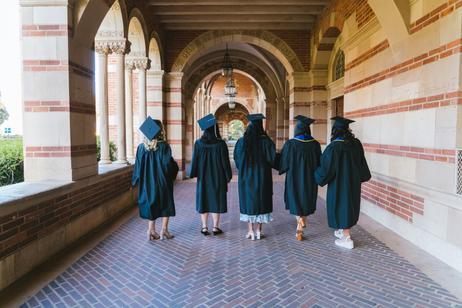What Do Private School Alumni Say 10 Years Later?
A decade after crossing the stage at graduation, many alumni pause and ask: Was it worth it? What impact did private schooling have on my life, my earnings, my identity? In 2025, parents, students, and educators still grapple with that question. This article examines recurring themes in alumni reflections, explores empirical research, and highlights what alumni wish they had known earlier.
The Persistent Perceived Value: Advantage, Confidence, and Networks
Among the most consistent observations from alumni is that a private school education tends to open doors—especially early in one’s career. Alumni frequently cite:
Opportunities: Access to rigorous coursework, extracurriculars, internships, and study abroad were formative.
Confidence and expectation: Being in a performance-driven environment fosters ambition.
Networks: Lifelong relationships with peers, alumni, and faculty often confer social capital later.
These subjective reflections align with broader data. A Gallup–NAIS study reports that graduates of independent schools progress more steadily through college and leverage key undergraduate experiences more often than peers from other schools (NAIS–Gallup Report).
In the UK, recent data also suggests that many of the most powerful positions—such as senior media, judiciary, and political roles—continue to be held disproportionately by those with private school backgrounds (The Guardian).
Earnings, Careers & Life Paths: What Played Out?
Earnings and career mobility
While private school alumni generally believe they have reaped a return on investment, the magnitude and equity of that return vary. A University of Cambridge study found that even after controlling for subject, university attended, and degree class, those who had attended private school still earned approximately 6–7% more than comparable peers (Cambridge Research).
Yet, not every alumnus sees that advantage in relative terms. Some reported moving into public or mission-driven sectors with lower pay but higher alignment to values; others said they felt pressure to justify the financial and emotional cost of their early schooling.
Career satisfaction and alignment
Alumni often distinguish between career success (salary, position) and career satisfaction (purpose, autonomy). While many say private schooling gave them technical skills and credentials, several note that their true fulfillment came from experiences outside traditional paths—entrepreneurship, creative work, public service.
Voices From Alumni: What They Highlight
Here are a few illustrative reflections:
Lucy Cole, ICS graduate: She credits her small class, mentorship, and travel programs for fueling her confidence and global curiosity.
Brooks School (‘53 class): Alumni recall not just academics, but the formative influence of camaraderie, discipline, and moral lessons overshadowing specific content.
A Waldorf alumna: She describes how the relational, creative culture built in her school continues to shape how she leads, mentors, and balances life.
While these are individual stories, they resonate with broader patterns of nostalgic pride, humble critique, and recognition that schooling is only the beginning.
Table: Typical Alumni Reflections After 10 Years
| Theme | Common Reflections |
|---|---|
| “Was it worth it?” | Generally yes — though gains were subtle, long-term, and context-dependent |
| Promise vs. delivery | Prestige helps early, but later success depends more on self-drive |
| Networks & relationships | Lifelong value — many use alumni ties for professional and personal growth |
| Emotional & life gaps | Soft skills, mental health, resilience often feel undernourished |
| Variation by context | Socioeconomic background, identity, and field mediate outcomes |
Nuance and Caveats: What Alumni Say About the Narrative
Privilege and structural advantage
Alumni reflections often acknowledge that private schooling amplifies existing privilege. Research in Oxford Open Economics argues that private schools don’t just transmit credentials—they help reproduce elite networks and social capital (Oxford Open Economics). Some alumni say: “I had many things going for me; the school was one piece.”
Survivors of harm
A small but serious minority of alumni recount negative experiences around discipline, exclusion, or trauma in their schools. Some only reflect deeply later in life, when the emotional weight surfaces. While anecdotal, these stories remind families that not every experience is uniformly positive.
What Parents and Students Should Ask (or Watch For)
If you are considering a private school or are revisiting one, here are some key questions to pose—rooted in what alumni say later:
How does the school support divergence, risk, and failure?
Look beyond accolades to how the school handles setbacks, mental health, and unconventional paths.What diversity of peers and experiences are built in?
Exposure to classmates from different backgrounds, values, and viewpoints seems to shape long-term empathy and adaptability.How intentional is the alumni network & mentorship?
A well-maintained network can be more than ceremonial—it can serve as a scaffold years later.Are real-world skills cultivated?
Critical thinking, communication, financial literacy, and resilience often matter more in your 30s and 40s than test scores.How does the school measure “success”?
If only in university matriculation and prestige, you might miss the everyday human skills and wellbeing that alumni say endure.
Ten Years Later: FAQs from Alumni
Q: Did private schooling guarantee success?
A: No. Many alumni say it improved odds, especially early in their paths, but did not guarantee fulfillment, resilience, or alignment.
Q: Do alumni always feel it was “worth it”?
A: Many do, especially in hindsight—but they often draw strong distinctions between worth and perfect. Benefits often compound slowly.
Q: How much does background matter?
A: A lot. Alumni frequently acknowledge that their family context, values, and earlier advantages shaped outcomes more strongly than any school alone.
Q: Did they regret not choosing public schooling or a more modest path?
A: Rarely in a blanket way. But some regret that they pressed too hard for prestige, sometimes at the expense of joy, creativity, or authenticity.
Conclusion: Legacy is Less a Diploma Than a Foundation
Ten years on, private school alumni tend to describe their education not as a destination, but as a launching pad. The credentials, experiences, and networks formed in youth provide a structure—but the trajectories that follow depend heavily on choices, values, resilience, and sometimes fortune.
If we listen to alumni reflections, the clearest lesson is this: choose schooling that builds both competence and character, that supports flourishing beyond advantage, and that leaves space for detours and reinvention. In 2025 and beyond, that wisdom is more vital than any curriculum.















